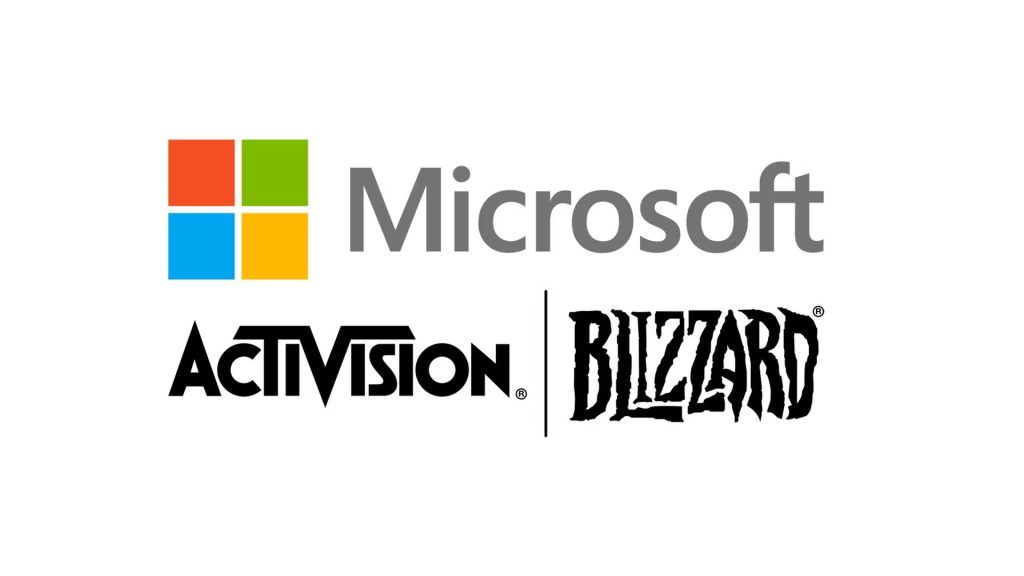Activision Blizzard Acquisition: FTC Challenges Court Decision In Favor Of Microsoft

Table of Contents
The FTC's Case Against the Activision Blizzard Acquisition
The FTC's core argument against the merger centers on the assertion that it would create an anti-competitive monopoly, stifling innovation and harming consumers. The commission expressed significant concern over Microsoft's potential to leverage its ownership of Activision Blizzard to gain an unfair advantage in the market, particularly concerning game console exclusivity and subscription services like Xbox Game Pass. The FTC argued this would limit consumer choice and harm competition.
- Specific examples of games: The FTC highlighted titles like Call of Duty, World of Warcraft, and Candy Crush Saga as potential candidates for exclusive release on Xbox consoles or inclusion solely within the Xbox Game Pass ecosystem. This would effectively lock out players on other platforms like PlayStation and Nintendo Switch.
- Market share analysis: The FTC presented data showcasing the significant market share held by Microsoft and Activision Blizzard individually, arguing that the combined entity would create an insurmountable market leader, reducing competitive pressure on other developers and publishers.
- FTC testimony and evidence: The commission presented extensive testimony from industry experts and presented evidence detailing Microsoft’s past practices concerning exclusive game releases. This evidence formed the basis of their argument that the acquisition was anti-competitive.
The Initial Court Decision in Favor of Microsoft
A federal judge ultimately sided with Microsoft, rejecting the FTC's attempt to block the Activision Blizzard acquisition. The court's ruling emphasized a lack of sufficient evidence to demonstrate the merger would substantially lessen competition. The judge argued that the FTC failed to convincingly demonstrate that Microsoft would make Call of Duty or other key Activision Blizzard titles exclusive to Xbox.
- Key findings: The judge's opinion highlighted the robust competition in the gaming market and the availability of numerous alternative gaming platforms. The court found insufficient evidence to support the FTC's claim of substantial lessening of competition.
- Dissenting opinions: While there were no formal dissenting opinions within the court at this stage, the FTC clearly disagreed with the judge's assessment, laying the groundwork for their appeal.
- Legal precedent: This initial ruling set a notable precedent, impacting future antitrust cases within the tech industry. It highlighted the high bar needed to successfully challenge major mergers on antitrust grounds.
The FTC's Appeal and Legal Arguments
Undeterred by the initial setback, the FTC filed an appeal, asserting that the court's decision overlooked crucial evidence and misrepresented the competitive dynamics within the gaming market. The appeal focuses on strengthening their arguments regarding the potential for anti-competitive practices related to game exclusivity and cloud gaming.
- Legal precedents: The FTC cites various legal precedents to support its appeal, arguing that the court misapplied existing antitrust law. The appeal emphasizes the potential long-term consequences for competition.
- New evidence and arguments: The FTC's appeal likely includes new evidence and a refined argumentation strategy focusing on the evolving landscape of cloud gaming and the potential for Microsoft to leverage its market power to stifle competition in this rapidly growing sector.
- Legal strategies: The FTC likely employs several legal strategies, including meticulously refuting the initial court's findings and presenting compelling new evidence to sway the appellate court's decision.
Potential Outcomes and Implications for the Gaming Industry
The appeal's outcome holds significant implications for the gaming industry. Several potential scenarios exist: the appellate court could uphold the initial ruling, reverse it, or potentially remand the case for further proceedings.
- Upholding the ruling: This would cement Microsoft's acquisition and potentially set a precedent making it harder to challenge future large tech mergers.
- Reversing the ruling: This would block the acquisition, potentially reshaping the gaming landscape and altering Microsoft's strategic plans. This would also strengthen the FTC’s hand in future antitrust cases.
- Impact on the gaming industry: Regardless of the outcome, the Activision Blizzard acquisition profoundly impacts game pricing, availability across different platforms, competition among developers, and the future trajectory of cloud gaming services. The decision will also significantly impact Microsoft's and Activision Blizzard's future market positions. Consumer choice will be heavily influenced by the final ruling.
Conclusion: The Future of the Activision Blizzard Acquisition
The FTC's challenge to the Activision Blizzard acquisition remains a pivotal moment in the gaming industry's history. The initial court loss, the subsequent appeal, and the potential ramifications for competition and consumer choice are far-reaching. The FTC's persistent challenge highlights the complexities of antitrust enforcement in the rapidly evolving tech sector. To stay informed about this ongoing legal battle and its impact on the future of the Activision Blizzard acquisition, follow updates from reputable news sources and legal websites specializing in antitrust law. The outcome will undoubtedly shape the future of gaming for years to come.

Featured Posts
-
 The Countrys Top Business Hot Spots Location Location Location
Apr 25, 2025
The Countrys Top Business Hot Spots Location Location Location
Apr 25, 2025 -
 The Dnieper River A Pathway To Peace And Cooperation
Apr 25, 2025
The Dnieper River A Pathway To Peace And Cooperation
Apr 25, 2025 -
 Frankfurts Return To Winning Ways Bochum Match Report
Apr 25, 2025
Frankfurts Return To Winning Ways Bochum Match Report
Apr 25, 2025 -
 Montana Senate Control Dems And Gop Coalition Dynamics
Apr 25, 2025
Montana Senate Control Dems And Gop Coalition Dynamics
Apr 25, 2025 -
 The Reality Of Wrongful Death Claims Clearing Up Persistent Misconceptions
Apr 25, 2025
The Reality Of Wrongful Death Claims Clearing Up Persistent Misconceptions
Apr 25, 2025
Latest Posts
-
 Wynne Evans Health Scare Update On His Condition And Return To Stage
May 10, 2025
Wynne Evans Health Scare Update On His Condition And Return To Stage
May 10, 2025 -
 Wynne Evans Road To Recovery Illness Details And Future Plans
May 10, 2025
Wynne Evans Road To Recovery Illness Details And Future Plans
May 10, 2025 -
 Singer Wynne Evans Shares Health Update Following Serious Illness
May 10, 2025
Singer Wynne Evans Shares Health Update Following Serious Illness
May 10, 2025 -
 Wynne Evans Health Battle His Illness And Potential Showbiz Comeback
May 10, 2025
Wynne Evans Health Battle His Illness And Potential Showbiz Comeback
May 10, 2025 -
 Wynne Evans Health Update A Nasty Illness And Showbiz Return Hints
May 10, 2025
Wynne Evans Health Update A Nasty Illness And Showbiz Return Hints
May 10, 2025
